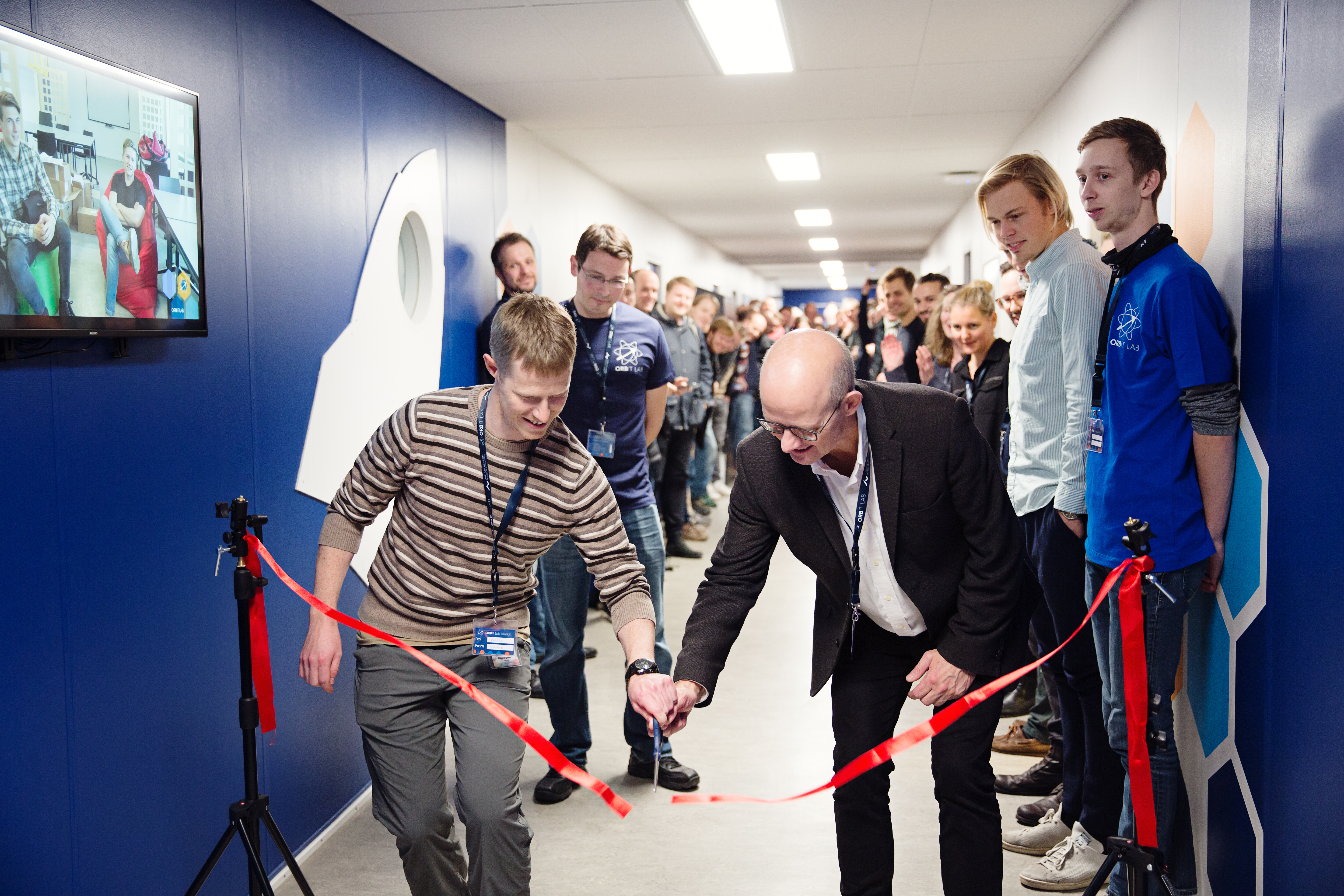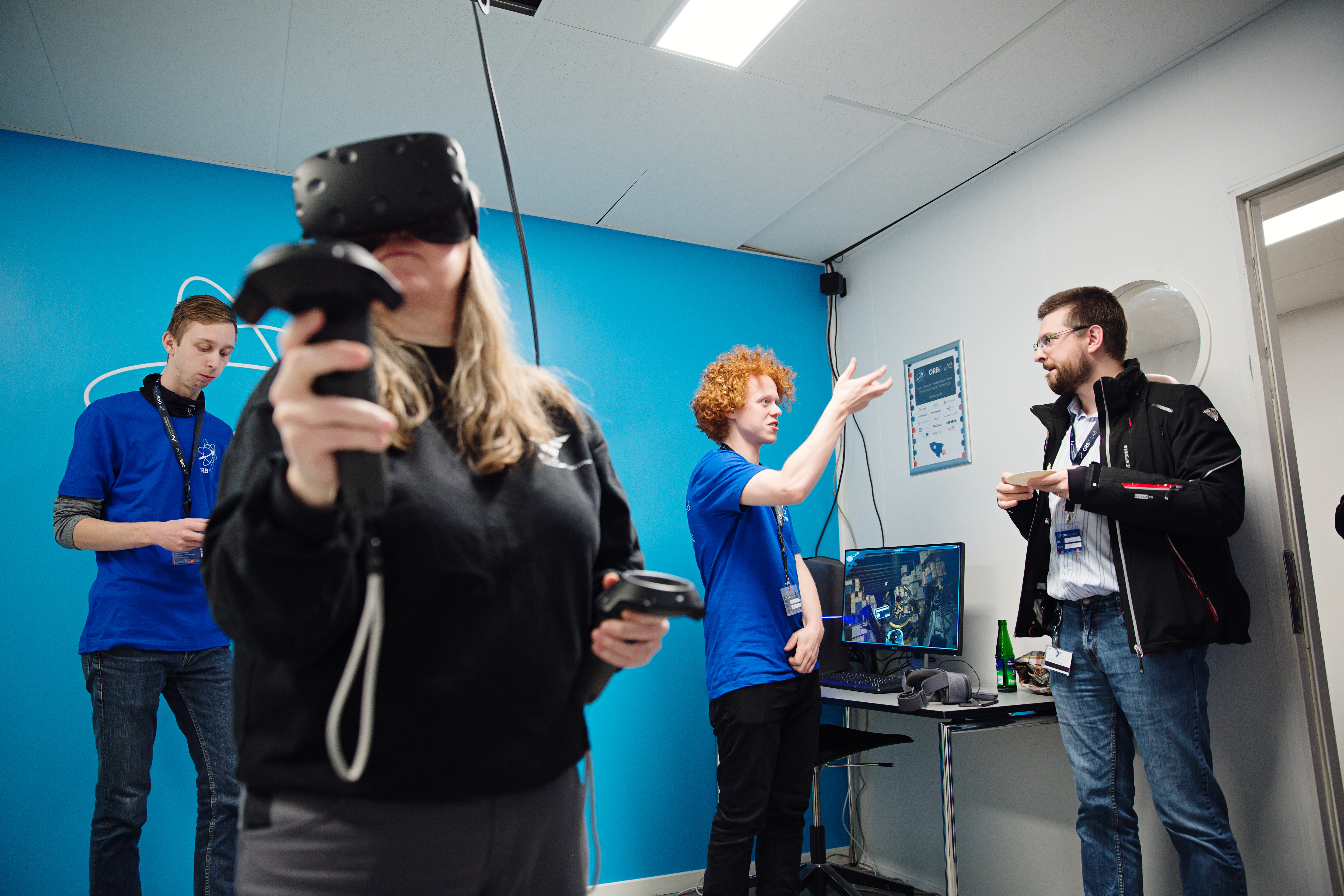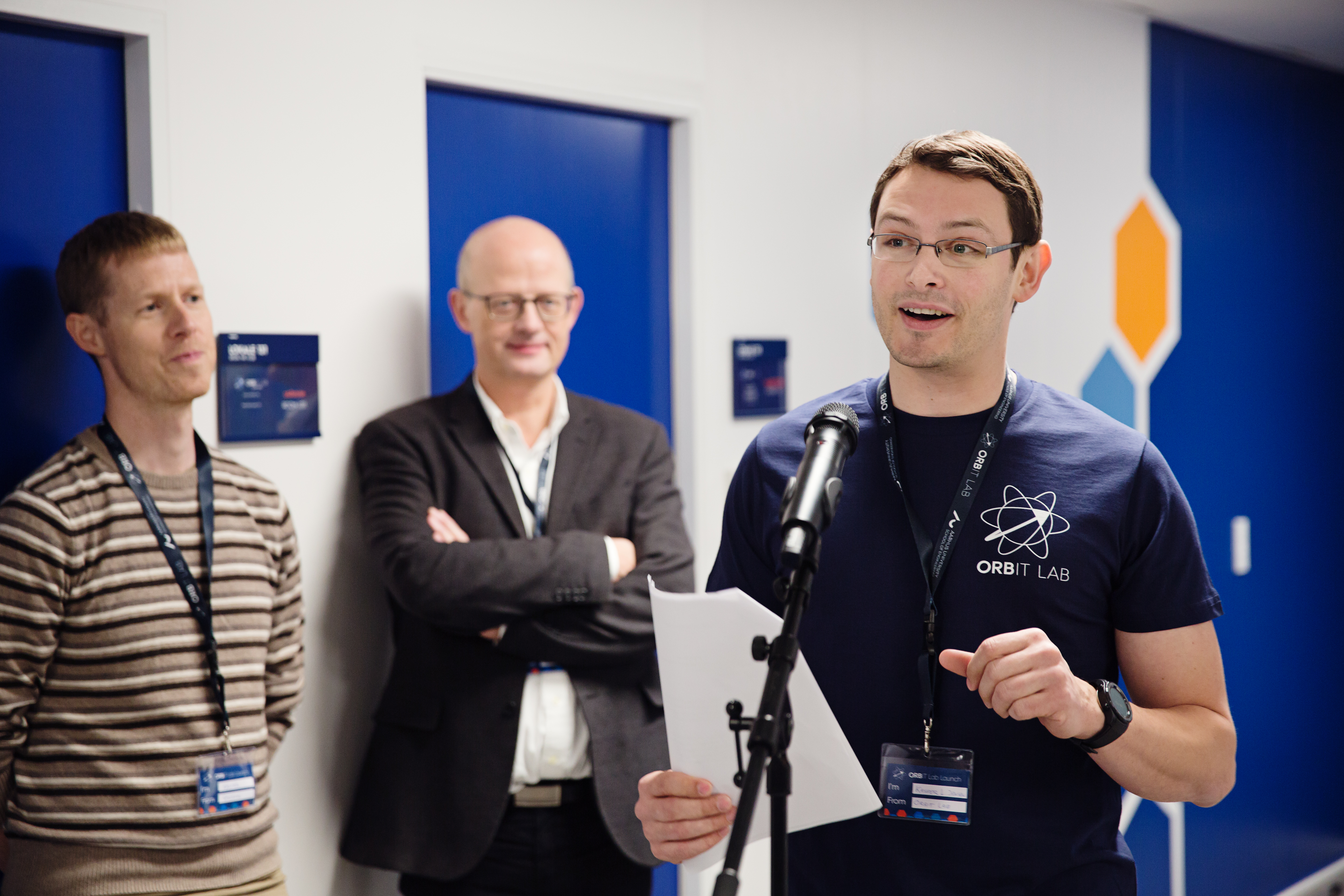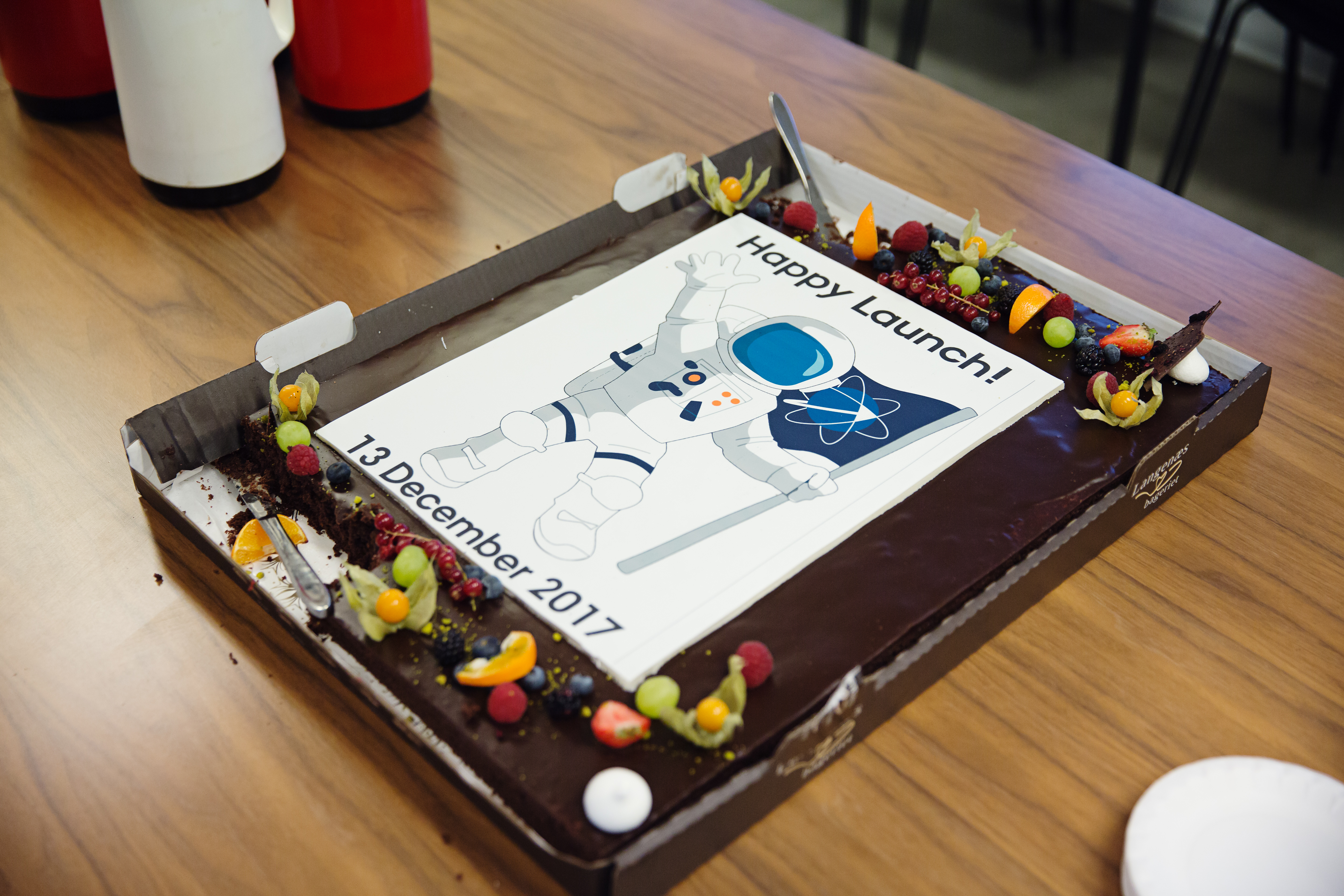How we solve the problems of today with the technology of tomorrow
The stage was set for inspiring ideas at the official opening of the ORBIT Lab on Wednesday 13 December, when Aarhus University staff and students were invited along with representatives from the business sector – and many interesting technological innovation projects were displayed.




‘Sign the guest wall, make a video log entry, post a picture with #OrbitLabAU, join on orbitlab.au.dk’. These slogans were printed on the back of the key hangers that were handed out to all the guests, myself included, when Aarhus University’s latest innovation – the ORBIT Lab – was officially opened on 13 December. People crowded into the laboratory’s small rooms, which are possibly not intended for large gatherings or congratulatory speeches, but are nevertheless perfectly suitable for their purpose – innovation. And 13 December was indeed a day for great congratulatory speeches.
“When I was here a year ago, the ORBIT Lab only consisted of one room, and look at it now. You’ve certainly expanded it a lot,” said Dean Niels Chr. Nielsen, Science and Technology.
“Aarhus University’s motto is Solidum petit in profundis (We seek solid ground in the depths). The ORBIT Lab aims for exactly the opposite. You’ll reach up to the stars, where the sky knows no boundaries and neither does the cloud,” he continued.
Associate Professor Kasper Løvborg Jensen, Aarhus University School of Engineering, is the ‘Lab Commander’ for the ORBIT Lab, and he joined in.
“Two years ago, the ORBIT Lab was no more than an idea, but we’ve now got everything in place. ORBIT is an acronym for Open Research and Business driven Innovation through Technology, and that sums up what we’ll be doing here at the ORBIT Lab. We’ll solve the problems of today with the technology of tomorrow. Our five key areas are education, recruitment, entrepreneurship, industrial collaboration and research. We invite interdisciplinary collaboration between the engineering and IT students and the business sector,” he said.
Google was also represented at the opening, where Kasper Lund – Development Manager of the IT giant’s Aarhus department – began by pointing out the ORBIT Lab’s excellent location in the IT City Katrinebjerg.
“At Google, we try not to wear shoes, so it’s perfect having the ORBIT Lab so close when we need to run across to you in connection with our collaboration. When I was studying at Aarhus University, I didn’t have my own computer and therefore had to sit along with the others in the basement of the university. This provided a perfect opportunity for collaboration, which can be a bit harder to find today, but the ORBIT Lab creates this invaluable option. And who knows? Perhaps the next Google or Microsoft will come from the ORBIT Lab,” he said.
Following the speeches, there was ample opportunity to take a look at everything from BSc projects to small start-ups. I came across Rasmus Henningsen and Nicklas Nielsen, who told me about their BSc project, consisting of a Myo armband that can record the user’s training. By means of an app, users can follow their own progress.
“We make it easier for the vast number of people who race around with paper and marker pen in fitness centres,” said Rasmus Henningsen.
In the room next door, a group of students were busy with an app that can pep up your car.
“The idea is that you can use the app to let your customers see what new rims would look like on their car, for example, before they go ahead and buy them,” said Sune Lindhard, who is working on a BSc project with Peter Rasmussen.
A start-up company called Relion was represented in another room. They provide customised IT solutions for websites and apps.
“Our aim is to make our own app, which will manage events for customers. Right now, however, we’re mostly testing the customers’ own apps. We operate very much with the ‘learning by doing’ concept,” said Kristian Emil Larsen from Relion, while his colleague Søren Grum broke in enthusiastically. “Yes, because right now we’re funding ourselves. We just want to get this up and running. That’s our dream!” he said.
And it continued like this from room to room. The opening of a new laboratory filled with innovation, collaboration and inspiring ideas. Even the interior design at the ORBIT Lab invited innovation. There were a number of quotations on the walls, such as ‘Failing is an option here. If things are not failing, you are not innovating enough,’ by Elon Musk.
On the way out, I walked past a wall with a framed poster where the guests were supposed to write their names. ‘Sign the guest wall’. A bit further on, I overheard Assistant Professor Henrik Kirk, Section for Software Engineering, say to a fellow from Microsoft: “Hey Simon, we’ve got a BSc project about the automation of a device wall. Would you be interested?” So business collaboration should definitely not be underestimated at the ORBIT Lab.
